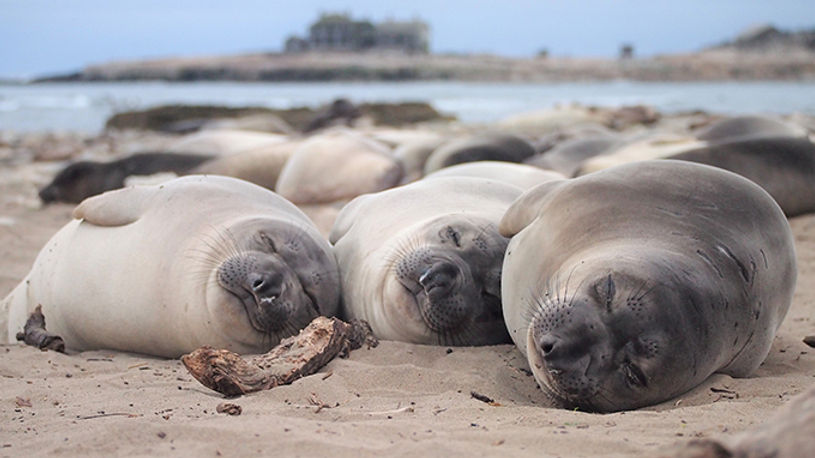By: Johnn Jin
Swimming at sea for months, the Northern elephant seal can take quick breaks on land. They only need to nap for about 20 minutes at a time, so in a full day they will sleep for less than 2 hours, according to a study released April 21.
“It’s important to map these extremes across the animal kingdom,” says Jessica Kendall-Bar, who studies marine mammals at the University of California, San Diego. Learning how much or how little sleep different animals get could help reveal why animals, including people, sleep at all.
The Northern elephant seal spends most of the year in the Pacific Ocean. Their prey is usually fish and they get hunted by sharks or killer whales. “People have known that these seals dive almost all the time when they’re out in the ocean. But it wasn’t known if and how they sleep,” notes Niels Rattenborg, of Max Planck Institute for biological intelligence. He wasn’t involved in the new study, but he has studied animal sleep.
During the research the scientists saw how the seal can move while sleeping. Kendall-Bar’s team took their two seals from Año Nuevo State Park, on the coast of California, north of Santa Cruz. The researchers then released the seals at another beach, one about 60 kilometers south of Año Nuevo.
“What the seals are doing [at the beach] might be something like what we do when we sleep in on the weekend,” Rattenborg says. “They can sleep while they’re flying,” so on those trips, “they sleep less than an hour a day for up to a week at a time,” he says. “Once back on land, they sleep over 12 hours a day.”
“It’s pretty cool” that elephant seals get by without one-sided sleep, Kendall-Bar says. “They’re shutting off both halves of their brain completely and leaving themselves vulnerable.” Diving far below predators is what allows the seals to rest easy.











